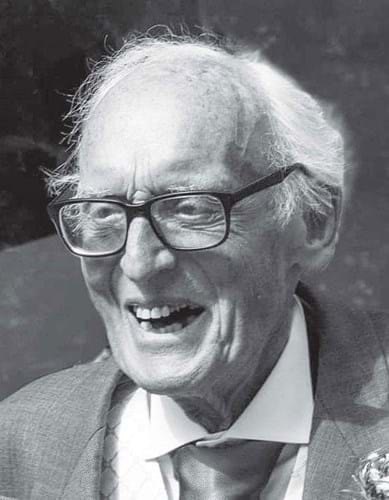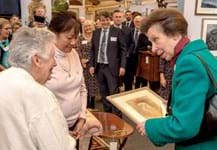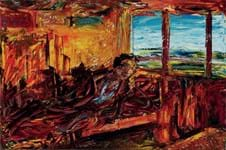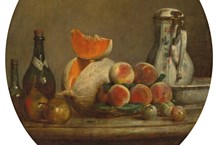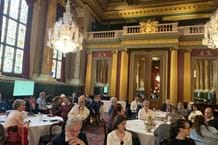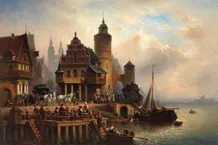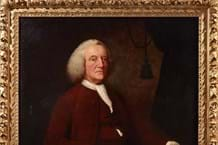For more than 60 years, without ostentation but with an amazing range of knowledge, he put together and sent out several hundred catalogues on subjects as diverse as English literature (especially seventeenth-century), science and medicine, geography and travel to all the remoter parts of the world.
John had a sense akin to second sight for what made books important or saleable. Starting without much capital, he built up his stock by clever buying from other booksellers whom he regularly visited.
“What did he see in that?” they would ask as he left with a car full of books.
They soon found out when his next catalogue came out; they also learned that he was always reliable, prompt to pay for what he bought and his descriptions clear and accurate.
But more than that, John was the best of good company, welcome wherever he went.
Away from acting
He had originally thought of acting as a career and passed all the exams needed for a LAMDA diploma, but his father’s example and expertise were irresistible, and he never regretted his choice.
He was fortunate too in the customers he acquired. Chief among them, then and later, was Sir Geoffrey Keynes, surgeon and book collector, whose tastes and enthusiasm did much to shape and encourage John’s; their friendship was sealed with a copy of the Baskerville Virgil in a sumptuous Roger Payne binding.
Bent Juel-Jensen was another medical book collector who shared the same tastes. John was equally at home and as universally popular among his fellow members of the trade. Ted Dring at Quaritch and Frank Maggs were early friends and mentors, and with Frank’s son John, our John made a close and lasting friendship. In the early 60s they made the first of many buying trips together to the USA and Canada, and then further afield.
John soon made as many more friends abroad, Mike Papantonio at Seven Gables, John Fleming, George Goodspeed, and his particular favourites, Dick Wormser and Frances and Margery Hamill & Barker in Chicago.
In 1967 the two Johns, Lawson and Maggs, went on a world tour, sometimes together, sometimes apart. Our John bought an excellent collection, replete with Donne and Blake, in Los Angeles, then travelled on across the Pacific via Hawaii, Fiji, New Zealand and Australia, where the legendary Ken Hince befriended both. John Maggs went home via India, John Lawson via Mauritius, where he bought another library and sold it on to the National Library of Australia at Canberra. A later trip took him to South Africa, where Tony Clarke, founder of Clarke’s Bookshop at Cape Town became another close friend.
Pioneering journeys
It must be remembered that these were pioneering journeys. Air travel was rarer and not ubiquitous as it is today. Not just the booksellers but librarians, at the National Library at Sydney, or John’s particular favourite, Tom Adams at the John Carter Brown Library, became friends for life.
Besides these wide-ranging travels, John did his bit at home. He was an active member of the ABA Committee, rising to become president in 1976-8. In 1979 Stanley Crowe persuaded him to stand for the vice-presidency of the ILAB, of which he later became president and then president of honour. His old talent for acting came to the fore, and his official speeches delighted all who heard them.
New home
By 1968 his father’s original premises in Sutton Coldfield had become less convenient, and he moved house and home to a nice old Tudor house in East Hagbourne on the border of Berkshire and Oxfordshire.
There he and his wife Monica brought up three children, Monica becoming, to his pride and delight, a pillar of the local community as well as EM Lawson & Co, for which she was awarded the MBE. Her sudden death in 2008 took away some of John’s natural delight in life.
It was John’s old friend Martin Hamlyn (Peter Murray Hill) who said ‘Independent bookselling offers a rare chance to carve out one’s own destiny’. John did just that, and made a triumphant success of it. Chatting to Keynes one evening, he wondered if he ought rather to have gone to university. “Do you really?” said Keynes. “If you had gone to university you might never have become an antiquarian bookseller, and you wouldn’t have enjoyed yourself nearly as much!”
True, thought John, but we who knew him also knew that if he had a natural gift for enjoying himself he had the greater gift making others round him enjoy life as much as he did.
Nicolas Barker

